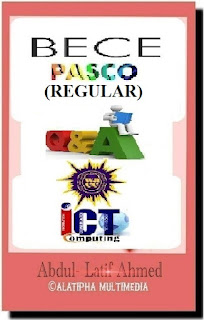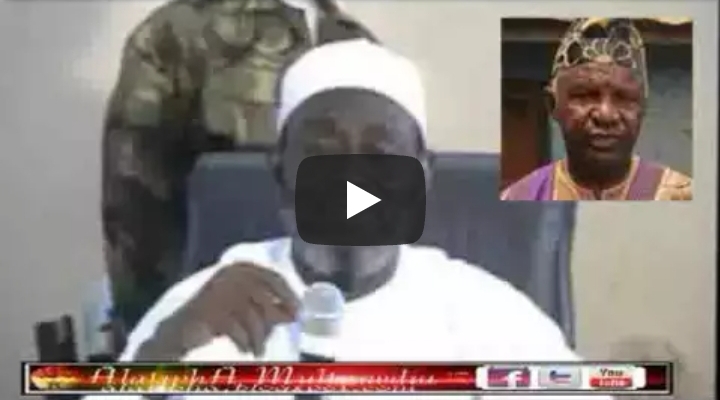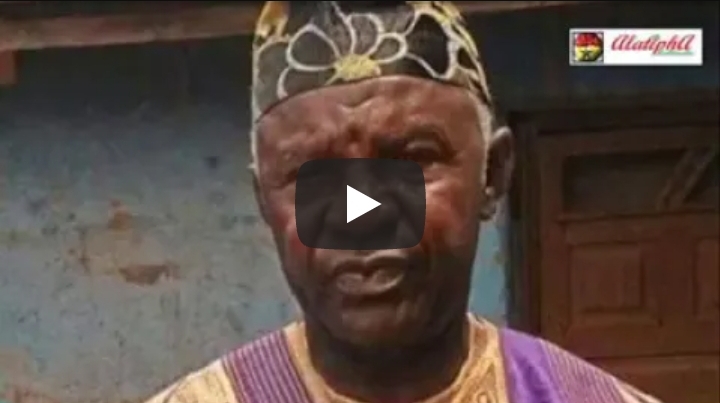FULL TEXT: What Prof. Kwesi Yankah Said At IEA Corruption Conference
Prelude
The theme chosen for today’s conference, Purging the Nation of Corruption, is not an uncommon one. It is timelessly topical within both the local and global context, and would attract anxious ears insofar as front pages of the media keep screaming with headlines from day to day about corruption.
But it is also one on which there is so much wasted energy, setting off well intended discussions which are often unproductive. One meeting, seminar or the other, often end with ambitious action plans that are of little utilitarian value. In several cases, the communiqué released after the seminar is often a one size fit all formula that could easily have been downloaded from the internet ten years ago. And it all seems as if the more seminars that are held on corruption, the more shocking are revelations on front pages the next day. With such a tragic history of dialogue on corruption, one can only wish good luck to organizers of one-day conferences such as this one.
But let me be a little more charitable. Hello IEA, thanks for inviting me to share with participants here, a few thoughts about the theme for today.
Throughout Ghana’s political history, different angles of corruption have entered Ghana’s popular culture and even mythology from one epoch to the other; the landmarks left in Ghana’s political history are memorable.
•In the 1960s, one recalls Mr. Krobo Edusei’s plush Golden Bed alleged to be costing three thousand pounds, which few ever saw, but was allegedly hidden away in his bedroom during the days of the CPP;
•In the mid sixties again, the forced resignation of a military Head of State for alleged underhand dealings in the Abbot agreement during the days of the National Liberation Council.
•The various commissions of inquiry instituted immediately after coups d’état, to probe allegations of corruption against officials of previous regimes.
•The Acheampong Government’s unilateral decision to boycott payment of all outstanding external debts incurred by the Busia Government, because they were tainted with corruption;
•The 1979 June 4th insurrection meant to sanitize a corrupt environment, and deemed by the AFRC as a necessary prelude to handing over of power to civilians.
•Naked bodies of market women subjected to severe lashes during revolutions, in the name of restoring sanity in the retail business, which was deemed corrupted;
•Kangaroo courts handing down draconian sentences ranging from 30 to more than 100 years, to public officials accused of ‘economic sabotage,’ serious fraud or corruption.
•Eminent public officials publicly humiliated, and sentenced to be porters of night soil, with pictures of their undignified errands splashed on front pages of Ghana’s daily newspapers, as penalties for corruption.
All these have not been enough to slow down the pace of corruption.
In a desperate search for a panacea against the social canker of corruption, we have even been compelled as a nation, to integrate into our 1992 constitution, the cliché probity and accountability, adjoining these to the nation’s principles of freedom and justice, upon which Ghana was founded. Probity and accountability, the theme for this conference, then became adopted as an integral part of the pillars on which the nation stands. The Preamble of Ghana’s Constitution says in part:
We the People of Ghana….in solemn declaration and affirmation of our commitment to Freedom, Justice, Probity and Accountability…do hereby adopt, enact, and give to ourselves this constitution.
Thus while the Constitution itself felonies armed insurrection against constitutional regimes, it paradoxically recognizes and institutionalizes the slogan ‘probity and accountability,’ which came with the 1979 and 1981 revolutions and eventually became standard symbolism for armed insurrection. Adopting these watch words, Ghana ignored for the sake of convenience, the sordid and foul circumstances under which the terms were ushered into Ghana’s political lexicon, and questions of tainted symbolism this could raise within the context of a constitutional order. But that could partly be explained by the very political climate in which the 1992 constitution itself was drafted, and the compromises we needed to make, to facilitate the transition to constitutional rule. If these ‘tainted’ slogans had been deployed, assimilated, and made bedrocks of our renewed national vision, it was perhaps in the name of a desperate quest for civility and transparency as cardinal instruments for good governance.
Agitation for Change
But the theme for this conference rightly points to public institutions as primary in any search for the quintessence of public morality; for it is in these that the public has invested. Public institutions have been set up and maintained by the public purse, and a few have been mandated by the Constitution to institute mechanisms that promote order and transparency in public life. Public institutions and the way they are managed indeed have implications for national stability.
Even within constitutional regimes, popular revolts, uprisings and civil insurrections have now become instruments by which corrupt governments have been publicly reprimanded and eventually unseated by the masses. The cases of Cote D’Ivoire, Burkina Faso, the several Arab spring movements triggered a few years ago in the Middle East, and recent insurrections in Brazil and several other countries, point up the implications of corruption for national and regional stability.
Electoral outcomes have been traced to corruption as well; and we cannot forget recent elections in Nigeria where corruption became a major issue that determined electoral choices. The perceived capacity of presidential candidates to fight corruption became an important consideration for voters in their electoral choices. Significantly, the second factor cited in Nigeria was security: the political will and capacity to fight rebel insurgency. Even here, President Jonathan’s critics have not separated that from the issue of corruption. They consider the security threat posed by Boko Haram to have provided an opportunity for a corrupt Government to further invade the public purse. The rather unimpressive outcomes of military engagements with Boko Haram over the past six years were considered as not commensurate with the billions of dollars voted to fight the insurgency. To critics moneys received in the name of security,$5.8bn in 2014,may have been frittered away.
Global/Regional Ranking
Significantly, African countries have often dominated the list of the 10 most corrupt countries in the world, in surveys done by the Transparency International in the past several years. Considered partly responsible for Africa’s poverty and underdevelopment, corruption is estimated to cost us in Africa, 25% of our combined national income: some 148 billion US dollars a year.
Within Transparency Perception Surveys, Botswana ranks in Africa as the least corrupt (No 1), but has on the other hand, been ranking between 30th to 37th position over the years, out of 175 countries in the world. Botswana often scores upwards of 5 out a total score of 10. It is also not surprising that Botswana boasts of having one of the best economies in Africa.
Since 1998, the global ranking of Ghana on corruption by Transparency International has considerably fluctuated (see chart below). Among the least corrupt countries, Ghana has hovered from 50th to the 70thposition over a period of 16 years, out of a total of 175 or so countries listed. Our best position ever was in 2002, when Ghana placed 50th, and the worst years were 2003 and 2006, when we placed 70th. Our placement between 50 and 59 ended in 2002. From 2003 onwards, we have placed between 61st and 70th positions out of 170+ countries. From 2006 to 2010, we hovered between 62nd and 69th, and improved up to 61st. Ghana’s current global ranking of 61 in 2014, is still better than Italy and South Africa.
Data sources used by the Transparency International include questions on abuse of public power, bribery of public officials, kick backs in procurement, embezzlement of public funds, and the strength of anti-corruption efforts in the public sector.
Least Corrupt Countries out of 174
Within Africa, Ghana has oscillated between 6th and 8thpositions from 2005 to 2014, an indication that there has indeed been no remarkable change in our fairly favorable placement within Africa. Our best in recent times has been a 6th place in 2012, and our worst in terms of positioning, is 8thposition in 2007, 2008, 2009, and 2014. Thus even though in 2014, Ghana’s position was fairly favorable (61 ), and scored fairly high (4.8) in the global index, its position within Africa, slightly declined.
Within Africa, Ghana has been constantly positioned after Botswana, Tunisia, South Africa, Namibia, and Seychelles Islands, and is occasionally interrupted by additional countries like Cape Verde and Rwanda.
Corruption Sites
While our ranking on the continent is not dismal, this should be seen against a few important factors: that Africa has often scored the lowest among the six regions designated by Transparency International, with an average score of 33 (or 3.3) out of 100. If one should go by global standards and Ghana is seen as belonging to the best 7 or 8 among the lowest rated continent, this should not be a great source of delight, considering that the continent itself is the lowliest rated. But of course, we should still be proud since the one-eyed giant is still a giant all the same. Secondly, corruption is persistently cited as a major obstacle to doing business in Ghana.
The final point has to do with the rather embarrassing sites in Ghana that are perceived as the most hospitable to corruption in recent times.
An Afro-Barometer survey by the CDD on Ghana recently, portrays rather disturbing trends about perceptions of corruption among certain key public institutions. Based on a sample of 2,400 respondents interviewed in mid 2014, the bad news was that the perception of corruption had significantly increased over the past year, and that the government has performed rather dismally in fighting corruption in the government.
Over time, despite a slight decrease from 2012 to 2014, the proportion of Ghanaians who think their leaders are involved in corruption has witnessed remarkable percentage-point increases – up to a 36-percent gain in the negative assessment of the President and officials in his office.
Overall however it was the police that topped the general corruption table followed by government officials, and MPS within the CDD survey.
If such had been people’s perception about the public institutions, was it surprising when the IEA’s 2015 corruption index survey, in which 1200 households were surveyed, ranked the Presidency, which is the President and the outfits directly under his control, as the second most corrupt institution in Ghana, after the Ghana Police.
Responses
The release of this damning research document by the IEA on the eve of the President’s State of the Nation address, predictably triggered a groundswell of condemnation by Government officials, who dismissed the survey as politically motivated, non-scientific, and lacking empirical value. What’s the proof, they said. To them, the report had been mischievously planted to undermine confidence in the long awaited presidential address. If the President speaks on 27th February 2015, why not a little bad news just before he walks up the podium?
On the CDD survey, in which 2400 people were sampled, one Government appointee mischievously interpreted the methodology rather literally when he said,
“Of the 25 million population in Ghana, why did the Survey decide to base its evidence on only 2400 people? How about the views of the 24 million others? Are they fools?”
As he said this, I could imagine worried observers squirming, and curiously Google-ing their handsets to check ‘where did he go to School,’ and possibly ‘who taught him research methods.’
To those who throw doubt on issues of perception, listen to a justification for the use of perception, by Transparency International.
Perception is used because corruption is to a great extent a hidden activity that is difficult to measure. Over time, perceptions have proven to be a reliable estimate of corruption. Scandals, investigations or prosecution, offer non-perception data, but reflect less on the prevalence of corruption in the country, and more on other factors such as freedom of the press, or efficacy of judicial system.
Indeed, from time immemorial very few Presidents in Ghana themselves have been said to be corrupt. Ghanaians have a tendency for euphemisms and would rather say, “As for the President himself, he is not corrupt—he is God fearing; it is rather the people around him.” And that would normally be taken as a declaration of support for a beloved President, who while in power must not be hurt. Whatever that means, it ignores a cardinal yardstick of good leadership, namely the capacity to exert control by word or deed over one’s field of influence.
Grounds for Perception
But why the presidency in Ghana would be so unfavorably positioned in such perceptions of corruption.
In other dispensations, that alarming perception verdict would have been grounds for a plethora of emergency meetings by councils of state, and other advisory bodies and institutions constitutionally mandated to promote public morality and probity; for the fish apparently rotten from the head, is likely to infect the rest of the body politic.
If on the other hand, the highly unfavorable perception of corruption in the presidency raised no eyebrows among the general public, that itself should add to the public perception. It would simply mean, this is something we all know.
What factors may have fed this perception. One could hazard a few guesses:
•The President wields so much constitutional power, and is responsible for key appointments to several public offices. When such public appointees are cited for embezzlement and corruption and no machinery is set in motion for investigation, prosecution, or indictment, the president takes the final blame.
•The perception is not surprising since the presidency is perceived to have become a comfortable refuge for officials suspected to have been involved in corruption and under investigation. The transfer or promotion of bad nuts to the presidency, rather than their demotion or indictment, tends to defile the dignity of the presidency, and taints its image.
•A third factor is the squandered or lost opportunities to prosecute presidential appointees suspected of embezzling public funds, but who have been merely transferred to other portfolios, as if with the aim of enabling a quicker spread of the virus.
•Fourth, the shelving in the presidency of several reports on probes and investigations, in which public appointees have been fingered for corruption, embezzlement and procurement deals, is counter-intuitive. The inaction on such long awaited reports on probes, leaves an unsavory perception of the presidency as merely a depository for reports that are only of archival value. The probe on the Maputo scandal that investigated Ghana’s sordid participation in the All-Africa games in 2011, should justifiably have been acted upon, in all fairness to the Ghanaian tax payer. Lessons from this probe, in the area of corrupt procurement practices alone could have mitigated the Brazil scandal; for the perpetrators would have been serving jail terms, or refunding stolen monies, serving as a deterrent to the Brazil gangsters.
•Indeed, there appears to be a pattern to all this. Whenever there is a public outcry against perceived corruption, the knee jerk response has been the immediate setting up of a committee; and this is often meant as a tender pacifier hastily inserted into the mouth of a crying baby. Sing a few lullabies, including the live broadcast of proceedings where witnesses shed a few tears, and your baby the good people of Ghana, will be surely put to sleep. By the time he wakes up from sleep, times have moved on; front page headlines have changed, and a new tournament in Equatorial Guinea has begun and ended, with absolutely no lessons learnt from history.
•Considering the perception that international sporting tournaments are often exploited as self-serving vehicles for embezzlement and the looting of state funds, public response to Ghana’s recent failed bid to host AFCON 2017 was rather revealing. Rather than exhibit patriotism, by lamenting Ghana’s failed attempt, the general public on hearing the bad news, rather burst into days of muted jubilation. With our failed bid, a big channel for creating, looting and sharing state property, had indeed been sealed. God had heard the prayers of the poor tax payer. Amen.
•But there could be another reason for the perception of corruption in high places. The purchase of scores of luxury vehicles as part of national projects, most of which end up as personal property of Government appointees, even when they are longer in that portfolio. The use of whopping 1.8m dollars in the purchase of luxury vehicles, including Ford Escapes, Dodge Dakotas, Lexus, and Chryslers, for a single electrification project could not have been comforting to the tax payer. So long as this continues with impunity, the blame will be put at the door of the presidency.
•Next is the dismissal by the presidency of a titanic anti-corruption crusader who from within the Attorney-General’s office years ago, blew the whistle on the illegal payment of judgment debts to individuals with whom the Government had no contract. For this act of patriotism, he was fired. The saga of Martin Amidu will forever remain a scar on the conscience of the presidency, so long as the crusader continues to agonize and does battle in court to retrieve Ghana’s stolen monies.
•Inversely, the Government’s lack of courage, in failing to bring to book key players complicit in the Woyome scandal; this is perceived as smacking of collusion and adds to the stigma of corruption in the presidency.
•To date moneys lost to judgment debts in recent times have been estimated to be approximately 1.5bn dollars, with culprits walking around with impunity.
•In the midst of all this in November 2014, a toll booth attendant steals 2 Cedis from sold tickets in a booth on the highway. Unbeknownst to him, a CCTV camera has been activated to track such pilfering. The poor boy is instantly hauled by the BNI and left in police custody.
•2014. A deputy minister is overheard in a secretly recorded conversation revealing her intention to quickly make about a million dollars, and thereafter quit politics. The minister is immediately dismissed, and loses her ministerial position. No official explanation is given for her dismissal except a reminder by Government Reps about the constitutional power of the President to hire and fire. With enormous room left open for conjecture, two interpretations of the dismissal were noted: first, that the dismissal was a penalty for indiscreet disclosure of her ambition to abuse power for the purpose of amassing wealth. The second conjecture was less charitable: that the dismissal was simply a sanction for the Minister’s unusually modest ambition; and that many were unimpressed by her humble standards, enough to have jettisoned her out of a Club 100.
I need not cite here the long list of items currently in the corruption headlines, where mega culprits appear to be walking scot free. Neither do I need to cite specific examples in past and present regimes, where insiders, including the Chairman of a party have alleged corruption on the part of their own presidents.
And even while this paper was being drafted came the latest horror story that the Presidency at a get together with 200 or so journalists, bribed each of them with a thousand Cedis each; and all this takes place at the very seat of the presidency: the highest embodiment of probity and moral values, and the vanguard of any war on corruption. That tragedy should have led to the instant indictment and dismissal of the perpetrator, who with a single foul deed had disgraced the presidency, and subverted the mandate of all institutions set up to combat corruption in the country. Under those circumstances, it is difficult to expect high standards of morality within other public institutions.
Legislature
But an effective check on the presidency and the executive would have been the legislature, expected to scrutinize the activities of the executive, and enact laws to uphold probity and accountability.
Recent public debates point to a major structural weakness in the Constitution that reduces the capacity of the legislature to fully fulfill this role: namely the incomplete separation of powers between the legislature and the executive, brought about by the constitutional provision requiring a portion of ministerial positions to be given to members of the legislature. If a parliamentarian is also a minister, how can they pass laws that exercise control over the executive?
Leaving aside structural issues, voices from within the legislature itself, have hinted of a night market within the corridors of parliament where moneys are doled out to promote sectional interests on the floor of the House. Whenever this issue has been publicly hinted, the whistle blowers have been subjected to severe censure from within and even threatened with appearance before the Privileges Committee of parliament. The earliest in recent times was Hon P.C. Appiah Ofori, former MP for Asikuma-Odoben-Brakwa who in 2008, blew the whistle on members of his party (then in Government), who were alleged to have collected $5,000 each, to push forward the Vodafone deal in the sale of Ghana Telecom.
In the case of Alban Bagbin, former Majority Leader, and MP for Nadowli, a very senior member of the House, the allegation originally made at a seminar, had indeed been amplified by other participants in the seminar who admitted to having paid bribes to parliamentarians at one time or the other, to carry out their law making functions, when it became clear that the MPs were not willing to move in the direction expected, unless “brown envelopes” changed hands.
Earlier on in 2003, a similar allegation had been made in the Ghanaian Times, where an MP of the Mpohor Wassa East Constituency had been reported as saying, that MPs take bribes at the committee level.
And what were the outcomes of these allegations: vehement denials by members of parliament, coupled with a measure of intimidation and muscle flexing directed at the whistle blowers. In the case of PC Appiah Ofori, he was virtually ostracized by his peers for the ‘untruths’ and the needless embarrassment caused them. But there may be other reasons. Appiah Ofori may have blown the whistle, only on realizing that he had missed his share of the deal. The anti-corruption legislator had apparently miscalculated, and slipped out of the House just before the exchange of envelopes. And it is hard to tell if there would have been any whistle at all had an envelope been received. He would probably have dropped that whistle!
In the case of Alban Bagbin, machinery was set in motion by the Speaker for Bagbin to be hauled or dragged before the Privileges Subcommittee, since the allegation cast a slur on the august House. Nothing has been heard since.
And when the Ghanaian Times blew the whistle in 2003, the then Editor and the reporter were both hauled before the Privileges Committee of Parliament. After threats, they were made to retract the story and apologize to the august House.
In all cases cited, respective Members of Parliament when given the opportunity to comment, have vehemently denied the allegation, sometimes going into the semantics of what is T & T, what is overtime, and the like. Significantly, no investigations are known to have been done or accomplished on these, and no findings have as yet been published.
Mr Speaker
Late 2012, I was invited to do a public book review of a just published autobiography written by Baafuor Agyeman Duah, entitled My Ghanaian Odyssey, in which he makes stunning revelations about a bribery encounter with the office of a Speaker of Parliament in the 1990s. Then representing a renowned think tank, Baafuor was given access to highly influential organizations and personalities around whom Ghana’s democracy revolved. One shocking revelation in the early phase of the author’s encounter with local bureaucracy was a clue that key officials of the legislature were not completely immune to bribery and executive graft. According to the author, the smooth transfer of a brown envelope to the Speaker’s Assistant may have helped to pave the way for seeing the Speaker with proposals for parliamentary reforms. The embarrassing episode was made worse when the Speaker’s compromised Assistant later called by phone, and brazenly complained of the low denominations in which the dollar bills had been issued!! Ten one hundred dollar bills would clearly have been preferred over several twenty dollar bills, which were rather bulky, and would attract much lower exchange rates. That single incident did not only leave a dent on the office of the Honorable Speaker; it was also a sign of the uncomfortable realities encountered when a private member or institution sought to introduce a bill or reforms within the legislature.
Whether whistle blowers within Parliament were subjected to intimidation or not, the truth was that the Legislature placed fourth in the Corruption Perception Index; it was perceived as the fourth most corrupt institution within the IEA survey.
CHRAJ
The issues I have raised have nothing to do with the adequacy or otherwise of anti-corruption legislation in our books. My concerns border on the amount of political will that can be possibly mustered by ethically weakened public institutions to combat corruption, as well as the moral authority they wield to support adequate budgetary allocations for institutions (like CHRAJ, EOCO, and the like) that are constitutionally mandated to deal with graft and serious fraud within the public sector, but appear to be too impoverished to effectively execute their mandate.
For those institutions like CHRAJ themselves, let me plead, that the nation should spare us appointment to their leadership positions, of personalities with untested moral profiles, that would bring to such positions profligate life styles, that cannot be easily supported by modest institutional budgets. The recent saga of the CHRAJ leadership, even though purportedly under investigation, is the least one would have expected in the leadership of an organization, that combats executive graft in public institutions. The lesson is simply that institutions ostensibly established by the Constitution to foster public accountability, might themselves be suitable candidates for tests of accountability.
Judiciary
But the third arm of Gov’t, the Judiciary, has not been spared the perception of corruption, either. In the CDD Afro Barometer survey, judges and magistrates placed fourth after Members of Parliament,
as the most corrupt. The perception since 2002 had worsened by 15 percentage points in 2014: from 70% in 2002 to 85% in 2014.
In this connection, one can only recall the fate of four lawyers who in 2011 at a seminar in Koforidua, made allegations of corruption within the judiciary and suffered for it. It included Dr. Raymond Atugugba, who was then the secretary of the Constitutional Review Committee. For their ‘sins,’ the four were hauled before the General Legal Council by the Association of Magistrates and Judges, to substantiate the allegations. In a communiqué issued, and signed by the entirety of the 25 member Executive Council, the AMJ resolved to recuse themselves from hearing cases in which any of the four lawyers appear, until the case was resolved.
Even before the council began hearing the case, the AMJ had begun boycotting cases involving the four lawyers. The Supreme Court on 19 May 2011, also refused to hear a case brought against a Member of Parliament in which Dr .Atuguba was counsel.
Indeed, an opportunity for self-scrutiny had been squandered by the Judiciary, I thought.
Crusaders in New Roles
Within two years of the incident, Dr. Raymond Atuguba, a crusader against corruption within the judiciary, was appointed as Secretary to the President, a position he occupied until early 2015 when he was relieved of his duties, and he returned to the University of Ghana to resume his position as lecturer at the Faculty of Law.
It is however unclear if while in the presidency for two years or more, Dr. Atuguba brought his anti-corruption principles to bear on any efforts to combat perceived graft within the presidency.
I mention this to bring into sharp focus, the story of known anti-corruption crusaders appointed within the presidency, whoappeared to have made little or no impact in mitigating the current perception of corruption within the presidency. I refer also to one former anti-corruption activist of the Ghana Integrity Initiative, who was appointed as Presidential Advisor on Corruption. In his most recent public statement, Mr. Daniel Batidam appears less enthusiastic in urging leadership to lead in the fight against corruption. The Presidential Advisor on corruption advocates that Systems, rather than the President, should lead the fight against corruption. He adds that it is undemocratic to expect the presidency to lead the anti-corruption drive. Mahama is not a judge, he says.
With such a lame excuse for the lack of anti-corruption initiatives within the presidency, one would indeed wonder the terms of reference in Batidam’s appointment letter, since his boss is not a judge.
But need I forget Buabeng Asamoah formerly also of the Ghana Integrity Initiative, whose credentials may have led to his appointment within the presidency of the Kufuor Gov’t, working in the office of the Vice President. His impact on anti-corruption within the Kufuor presidency, like others, remains unknown, so is the Office of Accountability, which was established within that Presidency.
And one wonders why anti-corruption principles of crusaders suddenly evaporate into thin air in critical hours of need at the presidency.
Winding Down
Winding down, let me advocate the need for more action and lesser exhortation, indeed fewer excuses in the rhetoric of probity and accountability. Let presidents and leaders in general simply take initiatives submitting themselves and their offices to probity and accountability, before expecting any national compliance, since the buck stops with the Leader. Responses like ‘corruption is as old as Adam,’ ‘Provide evidence that I am corrupt,’ as well as ‘I cannot fight corruption alone,’ uttered by past and present presidents are signs of weak leadership.
Just take a cue from General Buhari, the President elect of Nigeria. Knowing the weaknesses in the Nigerian constitution, in not requiring the open declaration of assets, he pro-actively declared his assets symbolically in the face book while contesting the presidential elections. Since his victory last March, he has held on to his conviction, and listed the ‘public declaration of assets,’ as a prerequisite for one’s inclusion in his team of ministers. He therefore decides to take the lead and expect the rest to follow, and serving notice to prospective lobbyists for ministerial positions. These are the dramatic initiatives one would expect if a leader wants to make an impact in combating corruption.
These initiatives should be urged on presidential candidates and presidencies in Ghana. In spite of weaknesses in the Constitution, simply go beyond the constitution and declare your assets publicly, and urge your public officials to follow.
It is such bold anti-corruption moves, led by the president himself, that are hallmarks of a strong leadership.
The world of course knows the trail of deceit in assets declaration in parts of the sub region, where in declaring one’s assets, a minister may openly declare ownership of 20 houses, even if he had none. After a close scrutiny, it is realized that this is only aploy. The public official simply implies under his breath, that “in the next four years, I am going to work towards acquiring 20 houses.” That way, a declaration of 20 houses after 4 years, would simply imply ‘I have not acquired any more property since I was appointed.’ Observers call it the ‘anticipatory declaration of assets,’ meant to signal how corruptible a public official intends to be, in seeking to fulfill his material ambitions. It is a clear declaration of corrupt intentions, except that a public declaration of assets allows the public to freely intervene to volunteer information on true assets.
But let’s also count the cost of corruption in Ghana: the several hospitals and clinics that could have been built without corruption and embezzlement; the hundreds of schools under trees we could eliminate along with anti-corruption moves in procurement practices.
The extra kilometers of roads, that Roads and Highways could construct without expending huge sums of project moneys on a luxury BMW for a past minister.
Finally, in the light of a perennial load shedding during which school candidates prepare for exams in darkness, consider how much of this could have been mitigated if the amount of $1.8m million dollars, foolishly spent on 38 luxury vehicles by the then Energy Ministry had been wisely expended on energy generation in 1200 communities as planned.
Distinguished ladies and gentlemen, corruptionin public life today undermines the future of several generations of children. We are simply unleashing misery and terror on future generations. I count on leadership to lead the anti-corruption crusade by word and by deed.
I wish you fruitful deliberations in this one-day conference.
Thank you.
28th April, 2015


.png)































Comments
Post a Comment